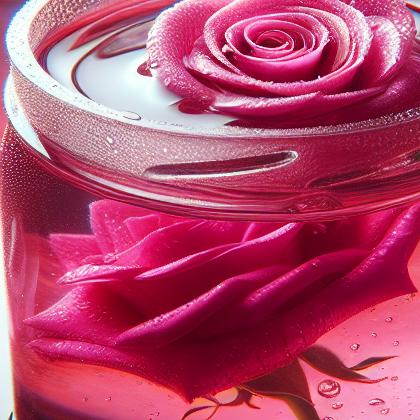Showing results for 'Rose water'
close
Rose Water

Rose water is a flavoured water made by steeping rose petals in water. It is the hydrosol portion of the distillate of rose petals, a by-product of the production of rose oil for use in perfume. It is used to flavour food, as a component in some cosmetic and medical preparations, and for religious purposes throughout Europe and Asia. Rose syrup is made from rose water, with sugar added.
Rose water Pairs With:
Food Item
Flavor Affinity Level

Did you know there are 74 food flavor pairings in my database for Rose Water available. What you are seeing above is a random list of 30 items which pair with Rose Water.
For the entire list, beautifully formatted, enter your email address and click the download button below, then I'll email it to you as a PDF.
Rose water Properties:
| Food Property | Type | Description |
|---|---|---|
| Flavor Profile | Sweet | Rose water has a delicate, floral sweetness. |
| Aroma | Volatile Compounds | Rose water contains aromatic compounds that give it a fragrant floral scent. |
| Color | Natural Pigments | Rose water has a light pink color from the natural pigments in rose petals. |
| Nutritional Value | Micronutrients | Rose water may contain small amounts of vitamins and minerals, depending on the source of the roses used. |
| Chemical Composition | Acidity/Alkalinity (pH) | Rose water typically has a slightly acidic pH level. |
| Texture | Moisture | Rose water is a liquid with high moisture content. |
| Aroma | Essential Oils | Rose water contains essential oils extracted from rose petals, contributing to its fragrance. |
| Cooking Behavior | Heat Conductivity | Rose water does not conduct heat as it is a liquid. |
| Water Retention | Rose water can be used in cooking and baking to add moisture to dishes. | |
| Oil Absorption | Rose water does not absorb oil as it is water-based. |
Food Pairing App - Version 1.2.0
